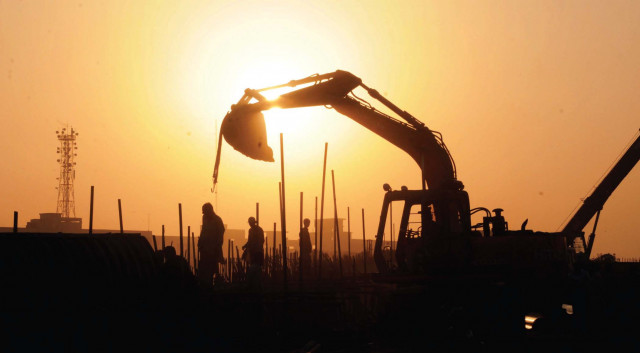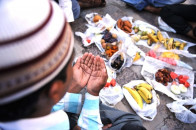Delay and corruption: Cost escalation in Kachhi Canal project to be probed
National Economic Council puts the project on hold till findings surface.

National Economic Council puts the project on hold till findings surface. PHOTO: EXPRESS/ FILE
The federal government has constituted a panel to investigate causes of delay and allegations of corruption in execution of Kachhi Canal Project whose cost alarmingly increased by three-folds to Rs59.3 billion. This was decided on Wednesday at a meeting chaired by Finance Minister Ishaq Dar.
The Executive Committee of the National Economic Council (ECNEC) – the country’s highest project approval authority, deferred the revised PC-I (a document stating financial and engineering details of the project) of the Kachhi Canal Project until the committee probes all issues pertaining to the project.

The project had been designed to irrigate 713,000 acres of land aimed at improving socio-economic standards of people in Punjab and Balochistan. A main 500-kilometer canal with 6,000 cusecs water capacity was under construction. The project commenced in 2002 and had to be completed by December 2013, but so far, the work is not even half complete.
The project had been approved at a cost of less than Rs20 billion and according to the PC-I the revised cost was estimated at Rs59.4 billion.
According to Planning Secretary Hasan Nawaz Tarar, the ECNEC wanted the committee to investigate the causes of delay before approval of the revised PC-I.
The panel will be headed by Planning and Development Minister and Planning Commission Deputy Chairman Ahsan Iqbal, along with planning and development secretary, Balochistan chief secretary, Water and Power Development Authority (Wapda) chairman, finance ministry advisor, irrigation secretary and members of the Punjab government.
According to sources the committee may not be able to dig out reasons behind the delay and corruption in presence of members who might be responsible for escalation of cost.

The ECNEC approved 16 projects amounting to Rs132.1 billion and deferred four projects including the Kachhi Canal Project and the construction of Dirgi Shabozai to Taunsa road, a project worth Rs6.1 billion.
Of the total 16 projects, 12 related to the energy sector amounting to Rs96.5 billion including construction of 31 megawatts Koto Hydro Power Project, which has an estimated cost of Rs7.5 billion.
Three projects amounting to Rs41.4 billion were located in Sindh, two in Khyber-Pakhtunkhwa (K-P) worth Rs9.8 billion, four projects worth Rs11.8billion, Rs8.7 billion, Rs22.5 billion and Rs2.6 billion in south Punjab, Balochistan, Azad Jammu and Kashmir and Islamabad respectively, while seven projects worth Rs43.6 billion were for Punjab.
In order to streamline the procedure of approval of projects by ECNEC, the finance minister directed the planning and development ministry to present projects approved by Central Development Working Party within seven days for final approval of the ECNEC.
Meanwhile, the ECNEC directed the planning and development ministry to also come up with an integrated plan for need of transmission lines for evacuation of electricity planned to be generated by 6600MW thermal plants at Gadani, 1200MW from Jamshoro, 2017MW Karachi Coastal Power Plants and other upcoming projects.
The meeting was informed that 90% work on Dera Ghazi Khan-Loralai transmission line has been completed while 70% work on Dadu-Khuzdar transmission has also been completed.
Published in The Express Tribune, August 29th, 2013.



















COMMENTS
Comments are moderated and generally will be posted if they are on-topic and not abusive.
For more information, please see our Comments FAQ